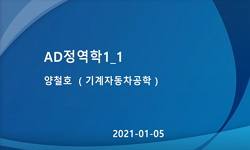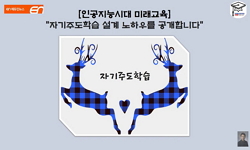This study was to examine the difference of medical students' academic motivation, self-directed learning and self-efficacy by their each academic achievement levels in criterion-referenced assessment system. Based on this, the implications for studen...
http://chineseinput.net/에서 pinyin(병음)방식으로 중국어를 변환할 수 있습니다.
변환된 중국어를 복사하여 사용하시면 됩니다.
- 中文 을 입력하시려면 zhongwen을 입력하시고 space를누르시면됩니다.
- 北京 을 입력하시려면 beijing을 입력하시고 space를 누르시면 됩니다.

준거참조평가제도 시행 이후 의과대학생의 학습관련 내적요인 변화 = Analysis of internal factors affecting learning of medical student in criterion-referenced assessment system
한글로보기https://www.riss.kr/link?id=A104847725
- 저자
- 발행기관
- 학술지명
- 권호사항
-
발행연도
2015
-
작성언어
Korean
- 주제어
-
등재정보
KCI우수등재
-
자료형태
학술저널
- 발행기관 URL
-
수록면
283-303(21쪽)
-
KCI 피인용횟수
0
- 제공처
-
0
상세조회 -
0
다운로드
부가정보
다국어 초록 (Multilingual Abstract)
As the result, self-efficacy in the overall score was higher in second semester compared to the first semester. Yet, there was no difference in academic motivation and self-directed learning. As sub-factors of academic motivation and self-directed learning of the second semester increased significantly compared to the first semester depending on the achievement levels. Based on the above findings, we suggested implications for learning support strategies depending on achievement levels in criterion-referenced assessment system. These findings suggest that, to enhance self-directed learning as a lifelong learning competency, It is desirable to consider academic achievements levels when designing the learner support strategies.
This study was to examine the difference of medical students' academic motivation, self-directed learning and self-efficacy by their each academic achievement levels in criterion-referenced assessment system. Based on this, the implications for students’ learning level support for criterion-referenced assessment operations were aimed to be offered. Number of 121 students, who are freshmen in medical school, participated. The scales of academic motivation, self-directed learning and self-efficacy were used in this study. The final records of the students were gathered. It was divided into top, medium, and low achievement level and then, it was analyzed. We conducted a MANOVA, ANOVA and t-test analysis for this study.
As the result, self-efficacy in the overall score was higher in second semester compared to the first semester. Yet, there was no difference in academic motivation and self-directed learning. As sub-factors of academic motivation and self-directed learning of the second semester increased significantly compared to the first semester depending on the achievement levels. Based on the above findings, we suggested implications for learning support strategies depending on achievement levels in criterion-referenced assessment system. These findings suggest that, to enhance self-directed learning as a lifelong learning competency, It is desirable to consider academic achievements levels when designing the learner support strategies.
국문 초록 (Abstract)
본 연구는 준거참조평가제도를 도입한 후 한 학년 동안 학생들의 학업성취도 수준별로 학습 관련 주요 내적요인인 학습동기, 자기주도학습 및 자기효능감의 변화를 조사하고 이를 바탕으로...
본 연구는 준거참조평가제도를 도입한 후 한 학년 동안 학생들의 학업성취도 수준별로 학습 관련 주요 내적요인인 학습동기, 자기주도학습 및 자기효능감의 변화를 조사하고 이를 바탕으로 준거참조평가제도 운영 시 학습자 수준별 학습지원 전략을 제안하는 것을 목적으로 하였다. 이를 위해 서울 소재 Y대학 1학년 전체 학생(N=121)을 대상으로 학기별로 학습동기, 자기주도학습, 자기효능감 검사를 실시하였고, 성적을 수집하여 상, 중, 하 수준별 집단으로 나누어 자료를 분석하였다. 학업성취 수준 집단간 차이 분석을 위해 MANOVA와 ANOVA를 실시하였고, 학업성취 수준에 따른 학기별 차이를 세부적으로 확인하기 위해 t-검증을 실시하였다. 연구결과, 전체 점수에서 자기효능감은 1학기에 비해 2학기가 유의미하게 높아졌으나 학습동기와 자기주도학습은 차이가 없었다. 학습동기는 학위변인인 성취추구, 주입된 규제와 무동기, 자기주도학습은 하위변인인 효과적 학습자 자아개념과 주도성과 미래지향성에서 학업성취 수준별 집단에 따라 1학기에 비해 2학기가 통계적으로 유의미하게 높아졌다. 이상의 연구결과를 바탕으로 제안한 준거참조평가제도 운영에 대한 학습자 수준별 학습지원 전략은 의학교육의 장기적 전략을 위한 핵심 자료가 될 것으로 기대한다.
참고문헌 (Reference)
1 전우택, "학생평가에 있어서 Pass and Non-pass 제도와 의학 교육문화환경" 90-95, 2014
2 한지영, "평생학습 학습성과 평가를 위한 자기주도학습 준비도 검사도구(SDLRS)의 타당성 연구" 한국공학교육학회 11 (11): 64-75, 2008
3 이윤옥, "자기주도학습 개념 분석 및 측정도구 개선방향에 관한 제언" 한국아동교육학회 16 (16): 19-30, 2007
4 소연희, "의과대학생들의 성취목표성지향성과 자기효능감이 수업에 대한 흥미와 학업성취도에 미치는 영향" 한국의학교육학회 20 (20): 37-49, 2008
5 홍혜영, "완벽주의 성향, 자기효능감, 우울과의 관계연구" 梨花女子大學校 大學院 1995
6 Guglielmino, L. M., "Why self-directed learning" 5 (5): 1-14, 2008
7 Guo, R., "Toronto's Honours/Pass/Fail Debate : The Minority Position" 85 (85): 95-98, 2008
8 Sherer, M., "The self-efficacy scale : Construction and validation" 51 (51): 663-671, 1982
9 Valentine, J. C., "The relation between self-beliefs and academic achievement : a meta-analytic review" 39 : 111-133, 2004
10 Black, A. E., "The effects of instructors' autonomy support and students' autonomous motivation on learning organic chemistry : A self-determination theory perspective" 84 : 740-756, 2000
1 전우택, "학생평가에 있어서 Pass and Non-pass 제도와 의학 교육문화환경" 90-95, 2014
2 한지영, "평생학습 학습성과 평가를 위한 자기주도학습 준비도 검사도구(SDLRS)의 타당성 연구" 한국공학교육학회 11 (11): 64-75, 2008
3 이윤옥, "자기주도학습 개념 분석 및 측정도구 개선방향에 관한 제언" 한국아동교육학회 16 (16): 19-30, 2007
4 소연희, "의과대학생들의 성취목표성지향성과 자기효능감이 수업에 대한 흥미와 학업성취도에 미치는 영향" 한국의학교육학회 20 (20): 37-49, 2008
5 홍혜영, "완벽주의 성향, 자기효능감, 우울과의 관계연구" 梨花女子大學校 大學院 1995
6 Guglielmino, L. M., "Why self-directed learning" 5 (5): 1-14, 2008
7 Guo, R., "Toronto's Honours/Pass/Fail Debate : The Minority Position" 85 (85): 95-98, 2008
8 Sherer, M., "The self-efficacy scale : Construction and validation" 51 (51): 663-671, 1982
9 Valentine, J. C., "The relation between self-beliefs and academic achievement : a meta-analytic review" 39 : 111-133, 2004
10 Black, A. E., "The effects of instructors' autonomy support and students' autonomous motivation on learning organic chemistry : A self-determination theory perspective" 84 : 740-756, 2000
11 Rohe, D. E., "The benefits of pass-fail grading on stress, mood, and group cohesion in medical students" Elsevier 81 (81): 1443-1448, 2006
12 Vallerand, R. J., "The academic motivation scale : A measure of intrinsic, extrinsic, and amotivation in education" 52 (52): 1003-1017, 1992
13 Zimmerman, B. J., "Student differences in self-regulated learning : Relating grade, sex, and giftedness to self-efficacy and strategy use" 82 (82): 51-, 1990
14 Silen, C., "Self-directed learning? A learning issue for students and faculty" 13 (13): 461-475, 2008
15 Ryan, R. M., "Self determination theory and the facilitation of intrinsic motivation, social development and well-being" 55 : 68-78, 2000
16 Woolfolk, A. E., "Prospective teachers' sense of efficacy and beliefs about control" 82 (82): 81-, 1990
17 White, C. B., "Pass/fail grading : laying the foundation for self-regulated learning" 15 (15): 469-477, 2010
18 Bandura, A., "Multifaceted impact of self-efficacy beliefs on academic functioning" 67 : 1206-1222, 1996
19 Eccles, J. S., "Motivational beliefs, values, and goals" 53 : 109-132, 2002
20 Stegers-Jager, K. M., "Motivation, learning strategies, participation and medical school performance" 46 (46): 678-688, 2012
21 Stipek, D., "Motivation to Learn: Integrating Theory and Practice" Allyn &Bacon 2002
22 Rynes, S. L., "HR professionals' beliefs about effective human resource practices : Correspondence between research and practice" 41 (41): 149-174, 2002
23 Green-Demers, I., "Factorial invariance of the Academic Amotivation Inventory(AAI)across gender and grade in a sample of Canadian high school students" 68 (68): 862-880, 2008
24 Marsh, H. W., "Explaining paradoxical relations between academic self-concepts and achievements : cross-cultural generalizability of the internal/external frame of reference predictions across 26 countries. Journal of Educational learning strategies" 96 : 56-67, 2004
25 Gonzalez-DeHass, A. R., "Examining the relationship between parental involvement and student motivation" 17 (17): 99-123, 2005
26 Feeley, A. M., "Exam Success at Undergraduate and Graduate-Entry Medical Schools: Is Learning Style or Learning Approach More Important? A Critical Review Exploring Links Between Academic Success, Learning Styles, and Learning Approaches Among School-Leaver Entry (“Traditional”) and Graduate-Entry (“Nontraditional”) Medical Students" 2015
27 Jacobs, J. L., "Encouraging an environment to nurture lifelong learning : An Asian experience" 36 (36): 164-168, 2014
28 Malhotra, G., "Comparative study of forced distribution and absolute rating performance management systems" 6 (6): 121-130, 2013
29 Krupat, E., "Commentary : Assessment is an educational tool" 84 (84): 548-550, 2009
30 Fredholm, A., "Autonomy as both challenge and development in clinical education. Learning" 5 : 20-27, 2014
31 Moore, R., "Attendance and performance" 32 (32): 367-, 2003
32 Artino Jr, A. R., "Achievement goal structures and self-regulated learning : relationships and changes in medical school" 87 (87): 1375-1381, 2012
33 Thomas, C. R., "Academic self? handicapping : The role of self? concept clarity and students' learning strategies" 77 (77): 101-119, 2007
34 Marzano, R. J., "A New Era of School Reform: Going Where the Research Takes Us" Mid-Continent Research for Education and Learning 2001
동일학술지(권/호) 다른 논문
-
자아탄력성이 학교생활적응에 미치는 영향 : 지각된 부모의 성취압력에 의해 조절된 대인관계능력의 매개효과
- 한국교육학회
- 임효진
- 2015
- KCI우수등재
-
Massive Open Online Courses (MOOCs)을 활용한 대학 정규수업에서 학습자의 동기유형별 학습 패턴 분석
- 한국교육학회
- 조문흠
- 2015
- KCI우수등재
-
대학생들의 진로미결정과 진로결정 어려움 관련 정서·성격에 따른 잠재프로파일 분류 및 영향요인 검증
- 한국교육학회
- 김민선
- 2015
- KCI우수등재
-
반성적 다문화교육 프로그램 적용 연구 - 반성의 수준 변화에 따른 다문화 관련 인식을 중심으로 -
- 한국교육학회
- 전귀자
- 2015
- KCI우수등재
분석정보
인용정보 인용지수 설명보기
학술지 이력
| 연월일 | 이력구분 | 이력상세 | 등재구분 |
|---|---|---|---|
| 2020 | 평가예정 | 계속평가 신청대상 (등재유지) | |
| 2015-01-01 | 평가 | 우수등재학술지 선정 (계속평가) | |
| 2012-03-19 | 학회명변경 | 영문명 : The Korean Society For The Study Of Education -> The Korean Education Research Association |  |
| 2011-01-01 | 평가 | 등재학술지 유지 (등재유지) |  |
| 2009-01-01 | 평가 | 등재학술지 유지 (등재유지) |  |
| 2007-01-01 | 평가 | 등재학술지 유지 (등재유지) |  |
| 2004-01-01 | 평가 | 등재학술지 선정 (등재후보2차) |  |
| 2003-01-01 | 평가 | 등재후보 1차 PASS (등재후보1차) |  |
| 2002-01-01 | 평가 | 등재후보학술지 유지 (등재후보1차) |  |
| 2001-01-01 | 평가 | 등재후보학술지 선정 (신규평가) |  |
학술지 인용정보
| 기준연도 | WOS-KCI 통합IF(2년) | KCIF(2년) | KCIF(3년) |
|---|---|---|---|
| 2016 | 1.65 | 1.65 | 1.67 |
| KCIF(4년) | KCIF(5년) | 중심성지수(3년) | 즉시성지수 |
| 1.71 | 1.85 | 2.063 | 0.48 |




 스콜라
스콜라






